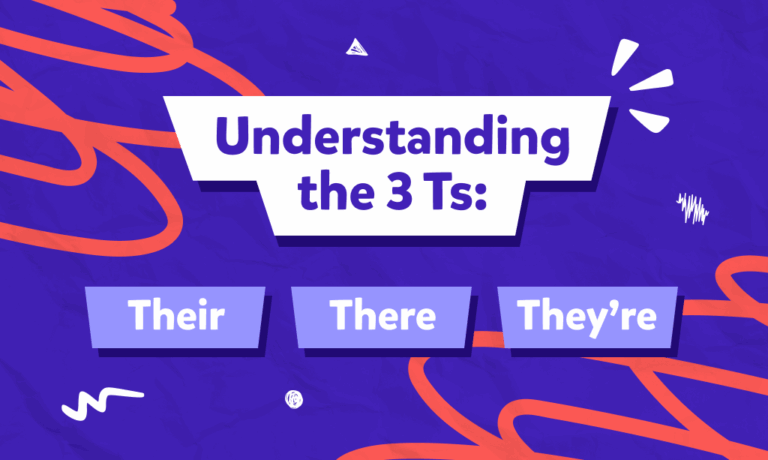Third-grade ESL learners, typically aged 8-9 years old, are at a developmental stage where they are curious and eager to learn. They thrive on hands-on activities and interactive learning experiences.
Is Learning English Hard? Honest Answers for ESL Learners
Ah, English, the quirky, ever-evolving language that seems to have a rule for every exception! If you’ve ever wondered whether learning English is difficult or a breeze compared to other languages, you’re not alone. Today, Novakid will explain the world of English learning and uncover the truth behind its complexity and global appeal.
English stands tall as a global powerhouse, bridging cultures, industries, and continents with its reach. Mastering English opens doors worldwide, making it a must-have skill for ambitious learners. Yet, amidst its importance, myths swirl about its difficulty, often leaving aspiring learners reaching for the nearest bilingual dictionary.
While English might seem daunting with its peculiar spellings and irregular verbs (we’re looking at you, “through” and “thorough”), the journey isn’t as treacherous as the legends suggest.

Is English Hard to Learn?
So, is English the hardest language to learn, or does it just have a bad reputation? Many learners start out excited, only to feel confused by silent letters, tricky grammar, and words that sound nothing like they’re spelled. It’s no wonder English can sometimes feel like a puzzle with missing pieces.
The truth is, English has its fair share of challenges. Irregular verbs, confusing pronunciation, and grammar rules that love to break themselves all play a role in making English difficult to learn.. But understanding why these things feel hard is the first step toward making them easier to learn and realizing that you’re not alone in the struggle. Let’s break it down and take a closer look.
Why English Can Be Challenging
English might seem easy at first, but many learners quickly find out that it can be full of surprises. One big reason is the grammar. English has lots of rules, but also many exceptions. For example, some verbs don’t follow the usual patterns or have many tenses, which can be tricky to remember and use correctly. Sometimes the same word is spelled the same way but said differently, like “read” (present) and “read” (past). That can be really confusing, and something we often see at Novakid during our trial lessons.
Pronunciation is another big challenge. English words are often spoken the way they’re written. There are many silent letters, and the same letter can make different sounds. Think about words like “cough,” “through,” and “though”—they look alike but sound totally different.
English also has a huge number of words; like soooo many words. There are many ways to say the same thing, which can be helpful, but also pretty confusing. Idioms like “it’s raining cats and dogs” don’t mean what they sound like, and people speak differently depending on the situation.
With all these rules and exceptions, it’s easy to understand how the legend arose as to why English is so hard to learn.
Comparative Difficulty of English
Compared to others, you might be wondering: Is English really the hardest language to learn? The answer is—it depends! Many studies and experts agree that English is not the No. 1 difficult language. In fact, languages like Mandarin Chinese, Arabic, and Japanese are often seen as more challenging because they use different writing systems, tones, and grammar. So if you’re learning English, take a deep breath—it could be harder!
English can still be tricky, of course, but it’s also one of the most widely studied languages in the world. If you are wondering how long it takes the average person to learn English? On average, it takes about 600–750 hours of study for a person to learn English well enough to have everyday conversations.
And what’s the top 1 easiest language to learn? For English speakers, languages like Spanish or Dutch are often seen as easier because they have similar grammar rules and use the same alphabet. For people learning English as a second language, the difficulty depends on what their native language is.
Is English Easy to Learn?
On the flip side, while some people say English is hard, others believe it’s actually one of the easier languages to learn. Why? For starters, English is everywhere! From movies and music to websites and apps, you’re surrounded by English every day.
Another reason English can feel easier is that it often uses simple sentence structure. You don’t have to worry about word genders or complicated verb endings like in some other languages. For example, “I eat,” “You eat,” “We eat”—the verb stays the same!
So, while English has its tricky parts, many learners find comfort in the fact that it’s used worldwide, and there’s lots of help available. With so many chances to hear, read, and speak English, it can become easier than you expected—especially with regular practice!
Why You Should Learn English
English is more than just a school subject—it’s a helpful skill you can use in many parts of life. It’s the most common second language in the world, and it helps you in school, work, travel, and everyday life. Here are some of the top reasons to learn English:
It’s spoken around the world – English is used in many countries, so it helps you talk to more people.
It can help you get a better job – Many companies look for people who can speak English.
It makes travel easier – English is often used at airports, hotels, and tourist places.
You can enjoy more books, movies, and music – A lot of entertainment is in English, and knowing the language helps you understand it better.
There are many free ways to learn – You can find videos, apps, games, and websites to practice English anytime.
So, is English very difficult to learn? The truth is, it can be both hard and easy, depending on your background and how you learn. English has some tricky grammar rules, strange spellings, and lots of idioms. But it also has simple structures, tons of free resources, and is used all around the world.
No matter where you’re starting from, the most important thing is to stay motivated and find learning methods that work for you. Remember, every language takes time and practice to learn. Don’t be afraid to make mistakes—that’s how you grow.
A parent- and teacher-friendly guide to gender pronouns in ESL. Learn what gender pronouns are, how to teach them respectfully, and fun activities to help children practice English confidently.
Perfect length of an English lesson depends on the age of children, their attention span and learning objectives. Most of the time, it varies from 25 to 60 minutes.
Master the distinctions between 'there,' 'their,' and 'they’re.’ Enhance your writing clarity and language by understanding when and how to use each term correctly.
Learn fun and interactive activities to teach English to preschoolers, including songs, games, crafts, and storytime, designed to make learning easy and enjoyable.
In this article an English teacher shares her recommendations on how to learn English fast.









































